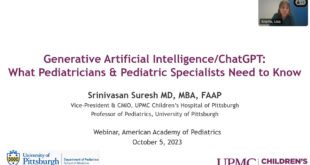The Power of Structured Lifestyle Interventions in Combating Dementia
A recent groundbreaking study has revealed that simple lifestyle changes can significantly slow down the early warning signs of dementia. This research, presented at the world’s largest dementia conference, highlights the potential of structured interventions to improve cognitive function and resilience against cognitive decline.
The study, known as the POINTER Study, involved over 2,000 older Americans who had a family history of dementia or risk factors such as high blood pressure and obesity. Participants were divided into two groups: one following a strict diet and exercise regimen, while the other was encouraged to make self-guided lifestyle changes. Both groups showed improvements in their ability to balance tasks, process information, and recall personal experiences. However, those in the structured group demonstrated nine percent better scores than those in the self-guided group, marking a significant shift in cognitive performance.
Participants in the structured group performed at a cognitive level one to two years younger than their actual age, suggesting that these interventions may effectively slow the cognitive aging clock. The study aligns with findings from a recent Lancet Commission report, which identified 14 modifiable risk factors for dementia, including physical inactivity, smoking, poor diet, pollution, and lack of social contact.
Researchers emphasized that this is the first large-scale randomized trial demonstrating accessible and sustainable health and lifestyle interventions that can protect cognitive function across diverse populations. Dr. Laura Baker, principal investigator and professor of gerontology and geriatrics at Wake Forest University, highlighted that structured lifestyle intervention is feasible and effective for improving brain health.
Trial participants described the study as a “lifeline,” noting that it helped them reverse key dementia risk factors such as prediabetes, obesity, and depression. The team plans to observe participants for another four years and expand the study to additional sites across the US, many of which are underserved by dementia prevention resources.
The study, conducted over two years, included 2,111 adults aged 60 to 79 from five sites in the US. The report was published in the journal JAMA. About 69 percent of participants were female, and over two-thirds were white. Approximately one in three were APOE-ε4 carriers, making them genetically susceptible to Alzheimer’s disease. Eight in 10 had a family history of memory issues.
Participants were assigned to either structured or self-guided lifestyle interventions. The structured group engaged in aerobic exercise, resistance training, and flexibility exercises, along with cognitive training and support group sessions. They were also encouraged to follow the MIND diet, which combines elements of the Mediterranean and DASH diets. The self-guided group received educational materials but no specific guidelines.
Peter Gijsbers van Wijk, part of the self-guided group, focused on increasing physical activity, using a smart watch to track his steps, and making dietary changes. He also dedicated time to volunteering after the loss of his wife. Both groups underwent regular assessments, with the structured group showing greater improvements in executive function and processing speed.
Dr. Baker noted that the structure and support provided in the study were crucial for long-term success. The structured group also experienced fewer adverse effects compared to the self-guided group. Researchers pointed out that national data shows 35 percent of older adults don’t meet physical activity guidelines and 81 percent consume suboptimal diets, highlighting the potential impact of these findings.
Phyllis Jones of Chicago described the study as her “lifeline,” leading to significant improvements in her health. She no longer suffers from depression, joint pain, or high cholesterol and has lost 30 pounds. She now believes that pain and decline are not inevitable parts of aging.
While the study had limitations, including its focus on specific sites and lack of overall dementia outcomes, the team plans to continue observing participants for four more years and expand the program. Gijsbers van Wijk suggested providing smart watches to participants who cannot afford them to better track health metrics.
Dr. Baker expressed pride in being part of the study, calling it a “magnificent journey.” The findings underscore the importance of structured lifestyle interventions in combating dementia and promoting brain health.
 Info Malang Raya Its All About World News
Info Malang Raya Its All About World News




